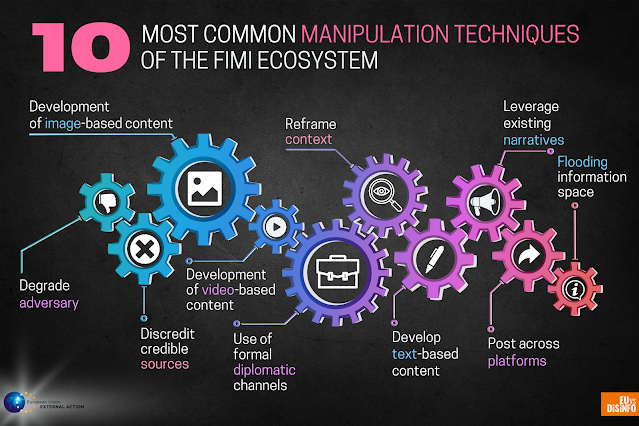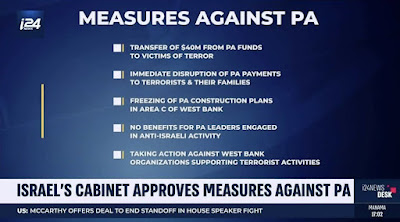The United States has left a leadership vacuum in the Middle east - and the Saudis filling it.
For decades, there has been jockeying on who would be the leader of the Muslim world. Egypt filled the role under Nasser but since then it has been a free for all.
Iran
tried to position itself as that leader in the 2000s, but it could not overcome the antipathy from the Sunni majority. Turkey has been making its bid. The UAE, while tiny, has been trying to set a new direction for the Gulf states in a post-oil world.
But over the past couple of years, Saudi Arabia has emerged as the clear leader. The Saudis always wanted a leadership role as well, but until recently their main asset was Mecca, and the religious component was a necessary but not adequate prerequisite for true leadership.
Now, the Saudis are setting the agenda not just as the leaders of the Muslim world but of the entire region.
Up until now, the Saudis have been the passive recipients of US security guarantees. The Obama administration's reckless pursuit of an Iran deal and discarding Saudi concerns taught the Saudis that relying on the US for security and leadership is foolhardy and they need to create their own solutions. The ignominious US abandonment of Afghanistan showed that the days of Pax Americana are long gone.
There has been much media attention to China filling the leadership vacuum, and indeed China has ambitions there, but mostly just to keep things calm to serve their own interests. The Saudis are not being passive anymore. They have been becoming skilled diplomats and working all sides to become congruent with Saudi goals and ambitions. I see the Chinese role in brokering agreements between Riyadh and Tehran as more the Saudis using China to rein in Iran than China showing leadership.
What are the Saudi goals? I believe that the major goal is security. Letting the US, Russia, and China set the agendas for the Middle East guarantees permanent strife for the region with no benefits. The Saudi vision for the region is to reduce risk by ending pointless conflict that only benefitted outsiders.
Refreshingly, the Saudis - along with the UAE and Bahrain - seem to have abandoned the zero-sum mentality that has kept the Arab world behind for so long. They are now seeking win-win solutions that can allow everyone to prosper without the worry of war, with themselves as the leaders.
The Saudi-led rapprochement between the Arab League and Syria is a perfect example. From their perspective, Syria is an evil regime, and there is no love lost between Syria and the other Arab states. Yet nothing has been gained by a decade of shunning them. Better to embrace them and influence them in a bear hug.
To an extent, this may be the Saudi policy towards Iran as well, as the Iranian economy is in terrible shape, and the Saudis are quite publicly telling the world that they have lots of cash. Their buying major soccer stars is a message to their neighbors. The Saudis may see Iran's threats to refine uranium to levels needed for the atom bomb as a bid for influence, and the message back is that Iran can have more influence and economic independence if they join in with the Saudi vision and de-emphasize their nuclear ambitions. (I'm not saying this will work, but if Iran is closer to the Saudi orbit, then Saudi Arabia is no longer a potential nuclear target.)
The Saudi leaders have been wisely investing in a future without fossil fuels, and they are trying to position themselves as an economic powerhouse in the coming decades. The Saudis want to keep the the peace with promises of sharing the economic future, but unlike similar US promises, the Saudis have skin in the game.
In recent weeks there has been more talk of the Saudis making peace with Israel. Again, the Saudi diplomats are in the driver's seat. Instead of the US leading the way, the Saudis are using the carrot of a possible peace deal to get what they can out of the US. They see the Arab-Israeli conflict as a pointless waste of time that hasn't benefitted anyone. On the other hand, they see great potential benefits of Israeli participation in the
Saudi vision of the future
In the old Arab mindset, the Palestinian issue was useful: it distracted from infighting and Arab corruption. It was used to create a false sense of Arab unity. In the new Saudi vision, those goals are better addressed by actually trying to build a modern society with transparency and a prosperous future. The Saudis still care about Palestinians but they know that there is no humanitarian disaster and that Palestinians are in no worse shape - and often better shape - than most other Arabs. They will try to leverage peace to get concessions from Israel on the issue, but the Palestinians are an afterthought in the Saudi vision for its role as the leader of the region.
The Saudis want the Middle East to be a player on the world stage in a post-superpower world, and they want to be the ones to set the agenda for the region. So far, they are doing exactly that.
Israel needs to decide on its own vision and determine how close it is to the Saudi version.
|
 Buy the EoZ book, PROTOCOLS: Exposing Modern Antisemitism today at Amazon! Buy the EoZ book, PROTOCOLS: Exposing Modern Antisemitism today at Amazon!
Or order from your favorite bookseller, using ISBN 9798985708424.
Read all about it here!
|

|

 Elder of Ziyon
Elder of Ziyon
























.jpg)





